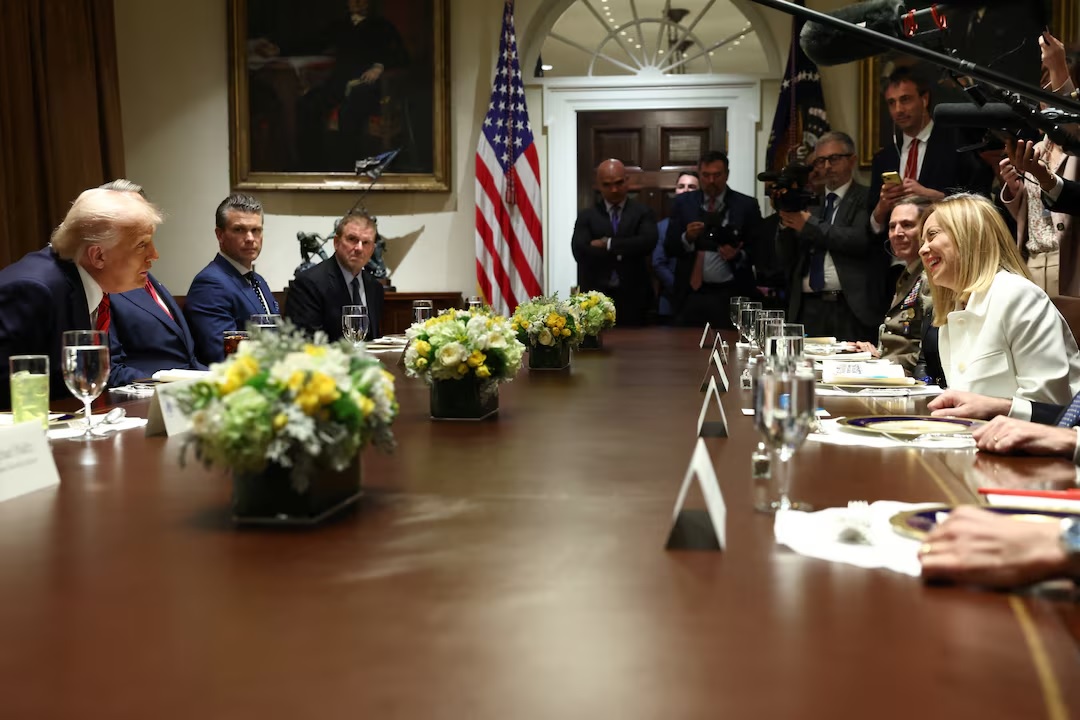A new trade agreement between the United States and the European Union, finalized over the weekend at Donald Trump’s golf resort in Scotland, has drawn mixed responses across Europe.
The deal according to online media sources, narrowly averted a deeper transatlantic trade conflict.
On the other hand, critics argue it falls significantly short of the EU’s expectations and imposes a heavy toll on European exporters.
The agreement, which includes a 15% tariff on nearly all EU exports to the US, including automobiles, helped avoid a harsher 30% tariff Trump had threatened to enforce by August 1.
Despite easing some of the tension, the deal is far from the EU’s original proposal for zero tariffs on both sides.
European exporters will now face tariffs more than three times higher than the current average of 4.8%.
Further negotiations are reportedly still pending on key sectors like steel—still taxed at 50%—aviation, and pharmaceuticals.
German Chancellor Friedrich Merz welcomed the agreement as a necessary step to de-escalate rising trade tensions.
He described it as a measure that prevented a “damaging trade war” and maintained stability in US-EU relations.
However, many in Germany’s business community expressed concern.
The BDI, representing German industry, warned of serious negative consequences, and the VCI, representing chemical firms, criticized the high tariff levels.
Germany’s vital automotive sector, already undergoing a major transformation, is particularly vulnerable.
The industry now faces a 15% duty on vehicles exported to the US, which is expected to erode both sales and profits.
Hildegard Müller, president of the German automotive association VDA, acknowledged the deal provided a framework but cautioned that it would lead to significant costs for manufacturers.
Despite the concerns, European stock markets opened higher on Monday, buoyed by relief that a deal had been struck.
Germany’s DAX index rose 0.86%, while France’s CAC 40 climbed 1.1%.
Ireland, a significant EU exporter to the US, cautiously welcomed the agreement.
Deputy Prime Minister Simon Harris noted it offered “a measure of certainty” but expressed regret over the new baseline tariffs.
French Minister for Europe, Benjamin Haddad, also shared a tempered view, saying the deal brought “temporary stability” but remained “unbalanced.”
Economic analysts have largely viewed the outcome as a win for Trump.
Berenberg Bank described the deal as ending “crippling uncertainty” but criticized it as a “lopsided outcome.”
Chief economist Holger Schmieding noted the increased tariffs would harm both sides, though Europe would feel the brunt of the impact early on.
He called the deal “asymmetric,” arguing that Trump had succeeded in raising tariffs while extracting further concessions from the EU.
UniCredit Bank echoed these sentiments, labeling the deal as far from ideal for the EU.
The bank emphasized that the outcome heavily favored the US, with EU exports now facing significantly higher tariffs than their American counterparts.
Still, European Commission President Ursula von der Leyen acknowledged the 15% figure as less than optimal but maintained it was the best deal achievable under the circumstances.
Earlier in the year, the EU had tried to pressure the US by preparing €21 billion in retaliatory tariffs, followed by a proposed €73 billion list of additional levies.
However, after the June NATO summit, Brussels shifted its approach, opting for a faster, limited deal in exchange for US commitments on security and defense.
By contrast, China continues its trade negotiations with Washington.
Over the weekend, Trump paused restrictions on technology transfers to China to allow space for further talks.
Berenberg suggested that while the trade deal could impact Germany’s economy, the recent stimulus package approved by the Bundestag might cushion the blow.
Steel remains a contentious issue. While the EU pushed for a tariff-free quota system, Trump insisted current rates would stay.
Nevertheless, von der Leyen later stated that some steel tariffs would eventually be reduced under a quota arrangement.
Pharmaceutical exports will also face the 15% tariff, with no exceptions promised by the US.
In the absence of a more comprehensive agreement, the EU is left facing steep levies.
These include 25% on automobiles, 50% on steel and aluminum, and a general 10% tariff, potentially rising to 30% if relations sour again.
The deal, though a relief to some, underscores the challenges of negotiating balanced trade terms under shifting geopolitical pressures.
With key European industries under strain, the longer-term implications of this compromise remain to be seen.







